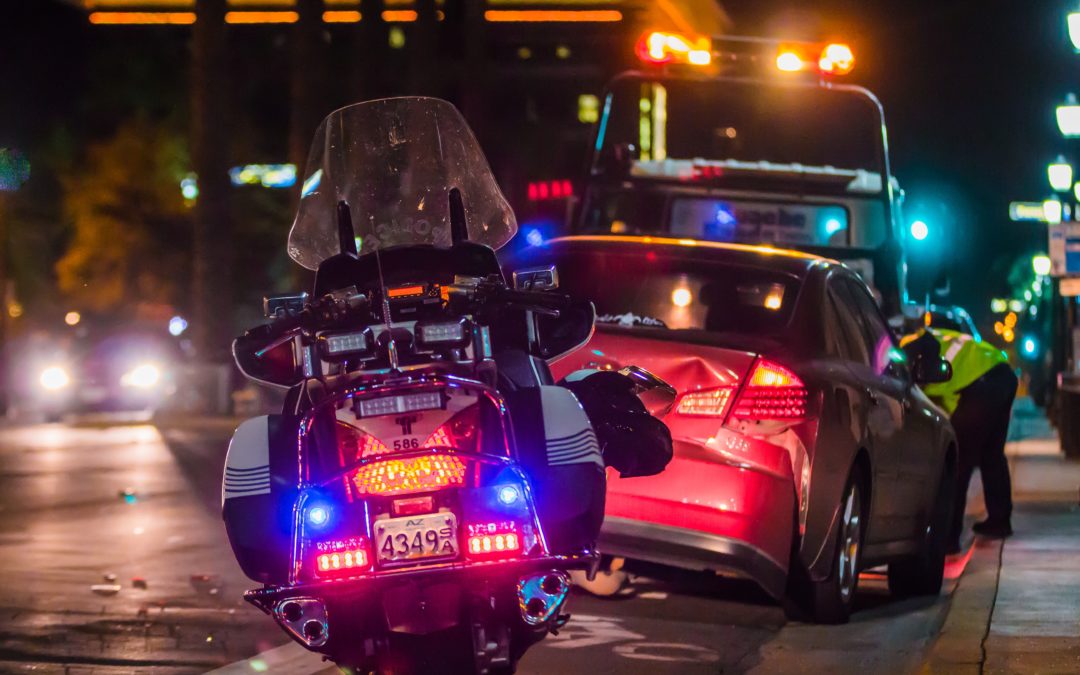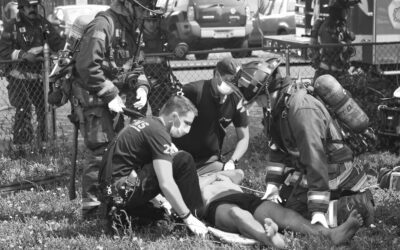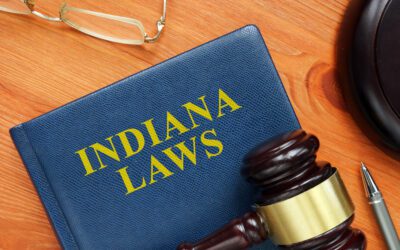In this comprehensive guide, we’ll walk you through everything you need to know about obtaining, understanding, and using your accident report to protect your interests.
Why Your Police Report Matters
When it comes to the aftermath of a car accident, documentation is your strongest ally. Your police report serves multiple critical functions that can significantly impact your ability to recover damages.
The Critical Role of Documentation in Your Insurance Claim
Insurance companies rely heavily on official documentation when processing claims. Without a police report, you’re essentially asking the insurance company to take your word against the other driver. A police report provides an objective third-party account of what happened, which can be instrumental in:
- Verifying the basic facts of the accident (date, time, location)
- Documenting vehicle damage and visible injuries
- Recording statements from all parties while memories are fresh
- Establishing road and weather conditions that may have contributed to the accident
Insurance adjusters typically give considerable weight to the information contained in police reports when determining liability and calculating claim values. Having this documentation can expedite your claim process and potentially lead to a more favorable settlement.
How a Police Report Serves as Evidence in Personal Injury Cases
If your accident results in injuries requiring medical treatment, a police report becomes even more valuable. When pursuing a personal injury claim, your police report establishes a crucial timeline that connects your accident to your injuries. This documentation helps:
- Establish a clear record that your injuries occurred as a result of the accident
- Document the immediate aftermath, including emergency medical response
- Record statements from witnesses who may be difficult to locate later
- Preserve critical details that might otherwise be forgotten or disputed
Your attorney can use this information as a foundation for building a strong case, especially if litigation becomes necessary. Without a police report, proving the circumstances of your accident becomes significantly more challenging.
What Your Report Reveals About Fault and Liability
Perhaps most importantly, a police report often contains the officer’s professional assessment of how the accident occurred and who was at fault. In Indiana, determining fault is particularly important due to the state’s modified comparative fault system. Under this system:
- You can recover damages as long as you’re not more than 51% responsible for the accident
- Your compensation will be reduced by your percentage of fault
- If you’re found to be more than 51% at fault, you cannot recover damages from other parties
A police report that indicates the other driver violated traffic laws, was distracted, or otherwise acted negligently provides powerful support for your claim. Conversely, if the report suggests you share some responsibility, it helps to know this early so you and your attorney can develop appropriate strategies.
When a Police Report is Required in Indiana
Understanding when you’re legally obligated to report an accident helps ensure you stay compliant with Indiana law while protecting your interests.
Legal Requirements for Reporting Accidents
Indiana law requires drivers to report accidents under specific circumstances:
- Accidents resulting in injury or death
- Accidents where someone is trapped in a vehicle
- Accidents causing property damage of $1,000 or more
- Accidents involving unoccupied or unattended property and the owner cannot be tracked down
In cases where police respond to the scene, they’ll typically file the report automatically. However, you will also need to file a report yourself within 10 days of the accident to the Indiana Bureau of Motor Vehicles for an accident involving injury, death, or significant property damage.
What Happens at the Accident Scene
When police arrive at an accident scene, they’ll collect information from all parties involved, interview witnesses, document vehicle positions and damage, and assess factors that may have contributed to the accident. During this process:
- Provide honest, factual information but avoid speculating about what happened
- Point out evidence that might be overlooked, such as skid marks or vehicle damage
- Identify potential witnesses for the officer to interview
- Mention any injuries, even if they seem minor at the time
The responding officer’s observations and conclusions will form the basis of your police report, making this initial interaction extremely important.
Timeline: When Will Your Report Be Available?
After an accident has been reported, you’ll need to wait before the official report becomes available:
- For minor accidents, reports are typically available within 5-10 business days
- More serious accidents involving extensive investigation may take 2-4 weeks
- Fatal accidents or those involving criminal charges can take months if a detailed investigation is conducted
These timelines can vary based on the agency involved and their current workload. If you need your report quickly for insurance purposes, it’s worth calling the agency directly to check on its status.
Methods to Request Your Indiana Accident Report
There are several ways to obtain your Indiana accident report online or in person. Each method has its advantages and considerations.
Using BuyCrash.com for Fast, Convenient Access
The most convenient option for most people is to make an Indiana accident report online request through BuyCrash.com, the official portal used by the Indiana State Police and many local departments.
To request your report online:
- Visit BuyCrash.com
- Create an account or sign in
- Select “Indiana” from the state dropdown menu
- Enter the required information (date of accident, name of involved party, location)
- Pay the fee (typically $12)
- Download and save your report
The online system is available 24/7 and provides immediate access once the report has been filed in the system. You’ll need a credit or debit card to pay the processing fee.
Visiting Your Local Police Department
For those who prefer in-person service or don’t have easy internet access, visiting the law enforcement agency that responded to your accident is a viable option:
- Call ahead to confirm hours and any documentation requirements
- Bring identification and any case number you were provided
- Complete a request form at the records department
- Pay the applicable fee (usually $5-15, depending on the department)
- Receive your report, either immediately or after a short processing period
This method can be particularly helpful if you have questions about the report or need additional information beyond what’s contained in the standard form.
When and How to Contact the Indiana State Police Directly
For accidents that occurred on state highways or involved state troopers, you may need to contact the Indiana State Police directly:
- Visit the Indiana State Police Crash Reports website
- Follow the instructions for requesting a report
- Provide all required identifying information
- Submit your request with payment
The Indiana State Police maintain a centralized database of all crash reports filed in the state, making them an authoritative source even for accidents handled by local departments.
The Indiana Accident Report Process
Understanding the complete reporting process helps you navigate the system more effectively.
At-Scene Reporting with Law Enforcement
When police respond to an accident, they follow a standardized process to document what happened:
- Secure the scene and address any immediate safety concerns
- Interview drivers, passengers, and witnesses
- Document vehicle damage and road conditions
- Collect insurance and identification information
- Determine if any traffic laws were violated
- Complete a preliminary report at the scene
The officer may provide you with a case number or incident report number at the scene, which you should keep in a safe place. This number will help you locate your report later.
When Police Don’t Respond: Self-Reporting Options
In some situations—such as minor accidents with no injuries—police may not come to the scene. In these cases:
- Exchange information with the other driver(s)
- Document the scene thoroughly with photos and notes
- Obtain contact information from any witnesses
- Visit a police station to file a report, or
- Complete an accident report form with the Indiana BMV
Self-reported accidents still generate an official record, though these reports may lack the officer’s professional assessment of fault.
SR21 Forms and the Indiana BMV
After certain accidents, you may need to file an SR21 form with the Indiana Bureau of Motor Vehicles:
- The SR21 form verifies you had valid insurance at the time of the accident
- It must be filed within 10 days of the accident
- Your insurance company can usually file this form on your behalf
- Failure to file can result in license suspension
This form is separate from but related to your police report, and both are important pieces of documentation following an accident.
Deadlines You Can’t Afford to Miss
Several critical deadlines apply after an accident:
- Police reports should be filed immediately or within 24 hours
- Self-reports must be filed within 10 days
- Insurance companies typically require notification within 24-72 hours
- The statute of limitations for personal injury claims in Indiana is 2 years from the date of the accident
Missing these deadlines can jeopardize your ability to recover damages, so prompt action is essential.
Understanding What’s in Your Indiana Police Report
Knowing how to interpret the information in your police report helps you use it effectively.
Driver and Vehicle Information Sections
This section contains:
- Names, addresses, and contact information for all drivers
- Vehicle make, model, year, and license plate numbers
- Insurance policy numbers and contact information
- Driver’s license information
This information is essential for insurance claims and identifying all potentially liable parties.
Accident Diagrams and Their Importance
Most Indiana police reports include a diagram showing:
- Vehicle positions before, during, and after the collision
- Direction of travel for each vehicle
- Road features and traffic control devices
- Points of impact between vehicles
These diagrams can be powerful evidence when determining how the accident occurred and who was at fault.
Narrative Statements and Officer Observations
The narrative section contains the officer’s written description of:
- What each driver reported
- What witnesses observed
- The officer’s own observations about the scene
- Any statements about contributing factors
This narrative often includes the officer’s opinion about what caused the accident, which can strongly influence insurance decisions.
Citations and Determinations of Fault
Your report will document:
- Any traffic citations issued
- Violations of traffic laws observed
- Preliminary determinations of fault
- Contributing factors like distraction, speeding, or impairment
Citations issued at the scene can serve as powerful evidence of negligence in subsequent claims.
Witness Information and Statements
What’s included in Indiana police reports regarding witnesses can be invaluable:
- Names and contact information for independent witnesses
- Brief summaries of witness statements
- Indications of witness credibility
- Consistency or inconsistency among different accounts
Independent witnesses often provide the most objective evidence about how an accident occurred.
The Process for Correcting Your Indiana Accident Report
If you discover errors in your report, taking action to correct them is important.
Identifying Errors Worth Addressing
Not all errors require correction. Focus on:
- Factual errors about the accident circumstances
- Incorrect information about drivers or vehicles
- Misrepresentations of statements you made
- Inaccurate diagrams or descriptions of how the collision occurred
Minor typographical errors or subjective assessments may not warrant the effort of formal correction.
Contacting the Responding Officer
The first step in correcting errors in Indiana accident reports is to contact the officer who created the report:
- Call the police department that responded to your accident
- Ask to speak with the officer who filed the report
- Explain the specific errors you’ve identified
- Ask about their process for making corrections
Officers can often correct clear factual errors without extensive procedures.
Submitting Correction Requests in Writing
For more significant corrections or if the officer cannot be reached:
- Write a formal letter identifying the specific errors
- Include your case number and the date of the accident
- Attach copies (not originals) of any supporting evidence
- Submit your request to the records department of the appropriate agency
Be clear, concise, and focus on factual matters rather than opinions or interpretations.
Providing Supporting Evidence for Your Corrections
Supporting evidence strengthens your correction request:
- Photographs of the accident scene or vehicles
- Statements from witnesses
- Medical records documenting injuries
- Video footage from dashcams or security cameras
- Expert analysis of the accident
The stronger your evidence, the more likely your correction request will be accepted.
Timeframes for Submitting and Processing Corrections
Act quickly when seeking corrections:
- Submit correction requests as soon as you discover errors
- Expect processing to take 2-4 weeks in most cases
- Follow up if you haven’t received a response within 30 days
- Keep copies of all correspondence related to your correction request
Most departments have specific procedures for handling correction requests, so follow their guidelines closely.
Working with an Attorney to Obtain and Analyze Your Report
For serious accidents or complex situations, legal assistance can be invaluable.
How a Car Accident Attorney Can Help Access Your Report
A knowledgeable car accident attorney in Indianapolis can:
- Request the police report on your behalf
- Ensure all supplementary reports are obtained
- Access additional information through formal discovery
- Interview the responding officers if necessary
Attorneys often have established relationships with local departments that can expedite the process.
Professional Insights into Report Interpretation
An experienced Indiana car accident lawyer brings valuable expertise:
- Identifying subtle indications of fault that non-professionals might miss
- Recognizing when report language might disadvantage your claim
- Understanding how insurance adjusters will interpret the report
- Connecting report details to relevant legal principles
This professional analysis can significantly strengthen your position when dealing with insurance companies.
When Legal Assistance Becomes Crucial for Your Case
Consider consulting an attorney if:
- The report contains errors or omissions that affect fault determination
- You’ve suffered significant injuries requiring ongoing medical care
- The other driver was uninsured or underinsured
- Liability is disputed despite the police report
- Multiple parties may share responsibility for the accident
In these situations, having expert guidance can make the difference between a fair settlement and inadequate compensation.
Using Your Police Report Effectively
Once you have your report, using it strategically is essential to win your personal injury claim.
Sharing Your Report with Insurance Companies
When providing your report to insurers:
- Submit a complete copy, not just selected pages
- Reference the report in all communications about the accident
- Highlight sections that support your version of events
- Be prepared to explain any aspects that might seem unfavorable
Remember that while insurance adjusters give weight to police reports, they conduct their own investigations as well.
Preserving Evidence Beyond the Police Report
Your police report is just one piece of evidence:
- Take your own photographs of vehicle damage and the accident scene
- Keep all medical records related to your injuries
- Save communications with insurance companies
- Document lost wages and other financial impacts
- Maintain a journal of how your injuries affect your daily life
This additional documentation complements your police report and strengthens your overall claim.
Long-term Considerations for Serious Accidents
For accidents resulting in serious injuries:
- Understand that some consequences may not be immediately apparent
- Consider future medical needs and ongoing care
- Evaluate the long-term impact on your earning capacity
- Be cautious about early settlement offers that don’t account for future damages
A thorough police report that clearly establishes fault provides leverage when negotiating for fair compensation that addresses both current and future needs.
Conclusion
Navigating the aftermath of a car accident can be overwhelming, but obtaining and effectively using your police report is a crucial step toward protecting your interests. By understanding how to get a police report after a car accident in Indiana, you’ve taken an important first step toward securing the compensation you deserve.
Remember that timing is critical—both in reporting the accident and in obtaining the official documentation. Follow the steps outlined in this guide to ensure you have access to this vital information when you need it most.
For complex cases involving serious injuries or disputed liability, working with experienced personal injury team at Broadwing Legal can make a significant difference in the outcome of your case. Their knowledge of Indiana accident law and experience with insurance negotiations can help you navigate the process more effectively and maximize your recovery.
By taking prompt action to secure and utilize your police report, you create a solid foundation for whatever next steps your situation requires—whether that’s an insurance claim, personal injury lawsuit, or simply the peace of mind that comes from proper documentation.
Contact us today to learn more about the justice you can receive with the help of Broadwing Legal.




